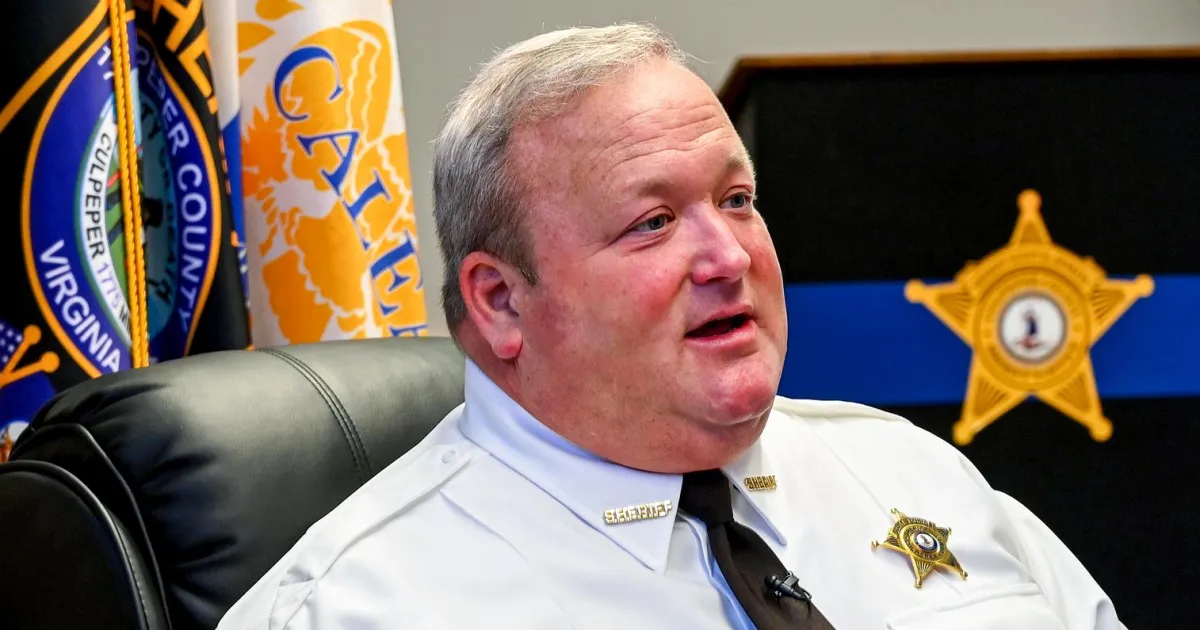
In a significant legal development, former Culpeper County Sheriff Scott Jenkins received a pardon from President Donald Trump, despite being convicted for accepting over $75,000 in a cash-for-badges scheme. The evidence against Jenkins was substantial, featuring undercover video footage that revealed his involvement in granting law enforcement authority to local businessmen and two undercover FBI agents. His co-defendants pleaded guilty, and the jury took only about two hours to convict Jenkins on all counts.
Jenkins was sentenced to 10 years in federal prison in March. During the sentencing, the acting U.S. attorney for the Western District of Virginia condemned Jenkins for violating his oath of office and betraying the trust of the citizens of Culpeper County. The case underscored serious issues of public corruption, raising questions about accountability among elected officials.
On Monday, President Trump characterized Jenkins as a victim of an "overzealous" Biden administration's Department of Justice, suggesting that Jenkins did not deserve to serve time in prison. This pardon aligns with a broader trend observed during Trump's second term, where he has granted clemency to at least four former public officials who were convicted of financial crimes.
In recent months, Trump has also pardoned other individuals, including former Illinois governor Rod Blagojevich, former Tennessee state Senator Brian Kelsey, and former Las Vegas City Council member Michele Fiore. Each of these individuals had faced legal challenges related to corruption or campaign finance violations, and their pardons have sparked discussions about the Justice Department's priorities regarding public corruption cases.
Notably, the Justice Department has seen a decrease in the focus on public corruption cases during Trump's administration. It has dropped significant investigations, including a campaign finance case against former Republican Congressman Jeff Fortenberry and a corruption case against New York Mayor Eric Adams, leading to the resignation of multiple Justice Department officials in protest.
Stacey Young, a former Justice Department official, criticized the administration's actions, stating, “Pardoning a sheriff who took cash for deputy badges is just the latest in a string of actions this president has taken to undermine any effort to hold officials accountable to the public they are sworn to serve.” The White House did not respond to inquiries regarding Jenkins' pardon.
The pardon found a supporter in Ed Martin, a conservative activist who has been closely associated with the Trump administration. Martin expressed his enthusiasm on social media, celebrating Jenkins as the first pardon he oversaw since becoming the U.S. pardon attorney. He emphasized a commitment to ensuring that “No MAGA left behind,” indicating a focus on supporting those aligned with Trump's political ideology.
Looking ahead, it appears that more pardons may be forthcoming for Trump supporters. Reports indicate that Trump reached out to the children of reality television stars Todd and Julie Chrisley regarding potential pardons for their parents, who were convicted of bank fraud and tax evasion. Additionally, Martin has been in discussions about pardon applications for members of the Proud Boys and the Oath Keepers, suggesting an ongoing effort to provide clemency to individuals associated with Trump's political base.
As the landscape of political pardons continues to evolve, the implications of Jenkins' case and the broader pattern of clemency decisions raise critical questions about accountability, justice, and the prioritization of public corruption cases within the federal government.